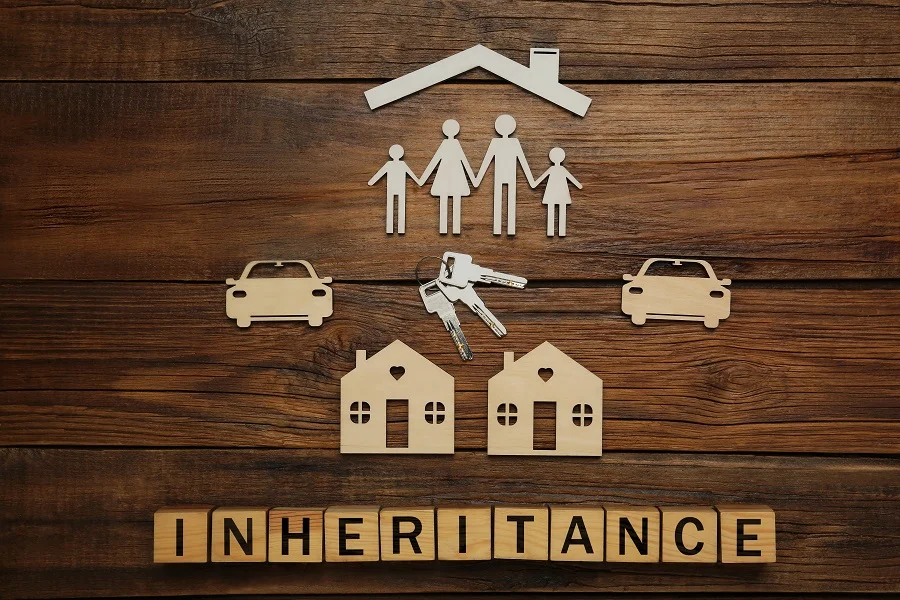When it comes to planning for the future, creating a will or trust isn’t just about legal documents; it’s about protecting your loved ones and making sure your wishes are honored. Both wills and trusts offer important benefits in Arizona, but the right choice depends on your goals, assets, and family circumstances.
As estate planning attorneys serving Arizona, we created this guide that goes beyond the basics to help you understand the differences and decide which option best secures your legacy.
Wills in Arizona: The Basics

A will allows you to name beneficiaries for your property, appoint a personal representative, and nominate guardians for minor children after your death. For a valid will in Arizona, you must be at least 18 years old, of sound mind, and have two witnesses sign the document. All wills must go through probate in Arizona, a court-supervised process that validates the will and oversees asset distribution.
Arizona offers a simplified small estate affidavit process for estates with personal property under $200,000 and equity in real property under $300,000, allowing heirs to bypass formal probate in these limited situations.
When a Will Makes Sense for Arizona Residents
Not every Arizona resident needs a detailed estate plan. Depending on your situation and goals, a will might be the right choice.
- Smaller estates with minimal assets: If your estate falls under Arizona's small estate threshold ($200,000 in personal property and $300,000 equity in real property), your heirs may qualify for simplified probate procedures.
- Young adults with few assets: Those just starting out who primarily have personal belongings and modest bank accounts may find a will sufficient for their current needs.
- Budget-conscious planning: Those with limited funds for estate planning can start with a will and add more comprehensive planning tools later as circumstances change.
- Straightforward family situations: Single individuals or those with uncomplicated family structures (like not having children or dependents) might find that a will adequately meets their distribution wishes.
- Temporary planning measure: A will can serve as an initial financial plan while you consider the benefits of more advanced planning tools.
Living Trusts in Arizona: The Basics
A living trust creates a separate legal entity that holds your assets during your lifetime and distributes them after death according to your instructions. Creating a trust involves drafting the trust document and funding it by transferring ownership of assets into the trust's name. Many Arizona residents choose revocable living trusts, which can be changed during the person’s life, rather than irrevocable trusts that cannot be easily modified.
The trustee plays the crucial role of managing assets held in the trust according to the terms you establish in the trust document. You can serve as your own trustee while alive and appoint a successor trustee to take over upon your death or incapacity, ensuring continuous management of your affairs.
When a Living Trust Makes Sense for Arizona Residents

Living trusts offer significant advantages for many Arizona residents, particularly those with specific concerns about privacy, probate, or asset management.
- Homeowners with equity: Arizona residents who own homes or other real property benefit from avoiding the probate process through a properly funded trust.
- Blended families with challenging distribution wishes: Trusts offer more control over how and when assets are distributed to children from previous marriages or relationships.
- Privacy concerns: Those who prefer keeping family business private appreciate that trusts don't become public record like wills do during probate.
- Snowbirds with property in multiple states: Arizona residents who own property in other states can avoid multiple probate proceedings by holding all properties in a single trust.
- Incapacity planning: Trusts provide for the management of your affairs if you become unable to handle your financial matters, without court intervention.
- Business owners: Those with business interests find trusts helpful for succession planning and uninterrupted business operations.
One downside of a living trust is the higher upfront cost and maintenance requirements. Trusts require ongoing attention to ensure new assets get properly titled in the trust's name, or they won't avoid probate.
What's the Difference Between a Will and a Living Trust in Arizona?
A will is a legally valid document that takes effect only after death, while a living trust works during your lifetime and continues after you're gone. Both tools direct how your assets transfer to beneficiaries, but they follow different legal pathways under Arizona law. Unlike wills, living trusts avoid court oversight when properly structured and funded. Arizona has specific rules governing each option's creation, execution, and administration.
Cost Comparison: Will vs. Living Trust in Arizona
The cost difference between wills and trusts represents one of the most significant factors in many families' decision-making process. Exploring both immediate and long-term expenses helps make an informed choice aligned with your financial plan.
While trusts require a larger initial investment, they often save money in the long run by avoiding probate costs that can significantly reduce the value of the estate your beneficiaries receive.
The Truth About Probate in Arizona
Probate in Arizona typically takes 4-8 months for straightforward estates but can extend to years for contested wills or challenging situations. The process costs roughly 3-7% of the estate's value between court fees, personal representative fees, and attorney costs. While wills must go through this court-supervised process, properly funded trusts bypass probate entirely, allowing for faster and more private asset distribution.
Living trusts do avoid probate in Arizona when properly funded and maintained. However, any assets not formally transferred to your trust during your lifetime will still require probate proceedings. This highlights why proper trust funding and regular reviews are important for trusts to fulfill their probate-avoidance purpose.
Privacy Considerations: Wills vs. Trusts
Wills become public court records during probate, exposing your assets, debts, beneficiaries, and distribution plans to anyone who searches court records. Trusts remain private legal documents, with details known only to the trustee and beneficiaries.
This privacy protection particularly matters for family businesses, high-value estates, or family situations where you prefer keeping financial matters confidential. Many Arizona residents choose trusts primarily for this privacy benefit, especially when concerned about potential family conflicts or outside scrutiny of their final wishes.

Do You Need Both a Will and a Trust?
Many Arizona residents benefit from having both a will and a trust as part of a comprehensive estate plan. A "pour-over will" captures any assets not already transferred to your trust, directing them to "pour over" into your trust after death. This combination ensures all assets eventually follow your trust instructions while providing the guardian designation capabilities that only a will offers.
Making the Right Choice for Your Future
The decision between a will and a living trust depends on your unique situation, asset level, and family dynamics. Both tools serve important purposes in Arizona estate planning, with different benefits and limitations. Having some form of estate plan in place protects your family from unnecessary stress and complications.
As an estate planning law firm, we at HagEstad Law Group have helped hundreds of Arizona families create personalized plans that provide peace of mind. Contact us today to discover which options best protect your family's future!

Wondering Which Option Makes Financial Sense? We Have the Answers.
Every family's financial situation differs, and your estate planning choices should reflect your unique circumstances and goals. The right combination of legal tools provides peace of mind for your family members.





